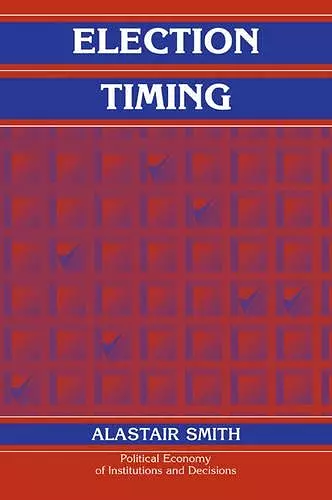Election Timing
Format:Paperback
Publisher:Cambridge University Press
Published:9th Apr '09
Currently unavailable, and unfortunately no date known when it will be back
This paperback is available in another edition too:
- Hardback£90.00(9780521833639)

The author explains when leaders call for elections and the consequences of their decisions.
The author proposes an informational theory of endogenous election timing that explains when leaders call for elections and the consequences of their decisions. He explains why leaders find it difficult to profit from their ability to call elections when they are popular and the opposition is weak.Endogenous election timing allows leaders to schedule elections 'when the time is right'. The author proposes and tests an informational theory of endogenous election timing that explains when leaders call for elections and the consequences of their decisions. In particular, he argues that, if all else is equal, leaders announce elections when they anticipate a decline in their future performance. As a consequence, early elections signal a leader's lack of confidence in future outcomes. The earlier elections occur, relative to expectations, the stronger the signal of demise. Using data on British parliaments since 1945, the author tests hypotheses related to timing of elections, electoral support and subsequent economic performance. Leaders who call elections early (relative to expectations) experience a decline in their popular support relative to pre-announcement levels, experience worse post-electoral performance, and have shorter campaigns.
ISBN: 9780521108317
Dimensions: 229mm x 152mm x 17mm
Weight: 430g
288 pages